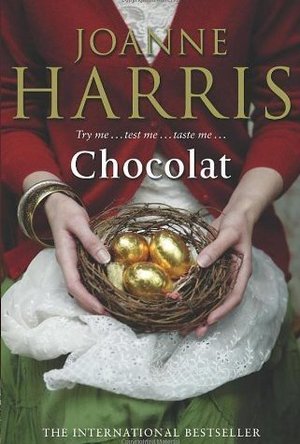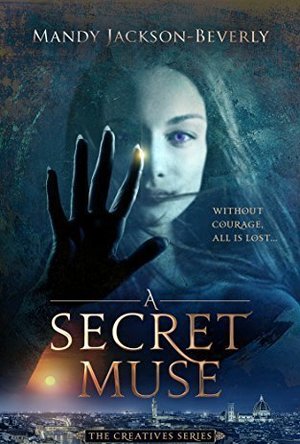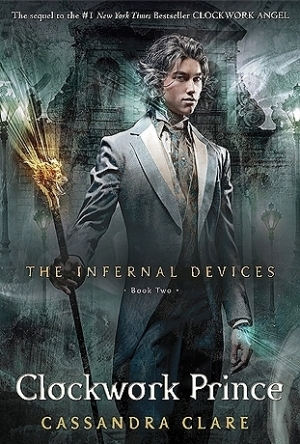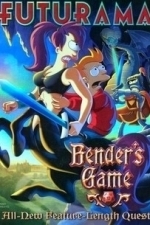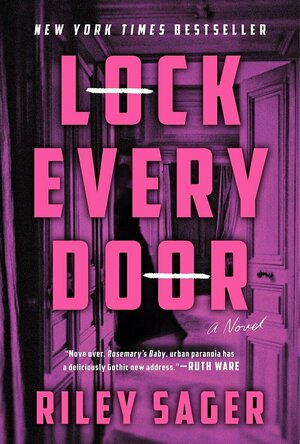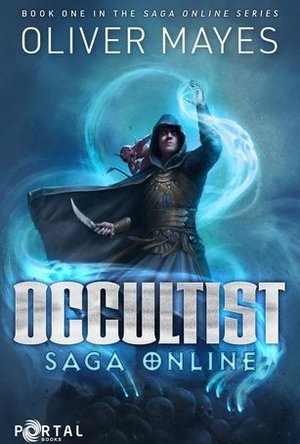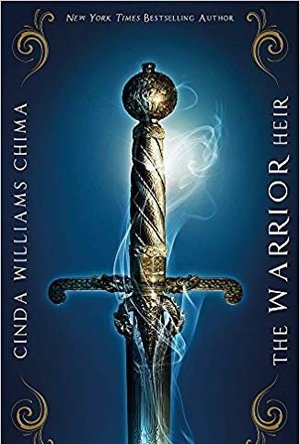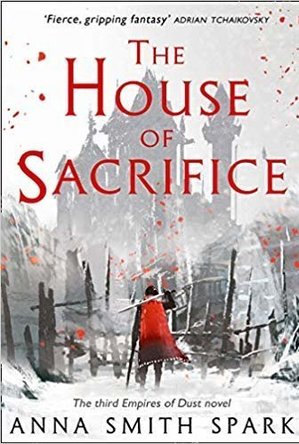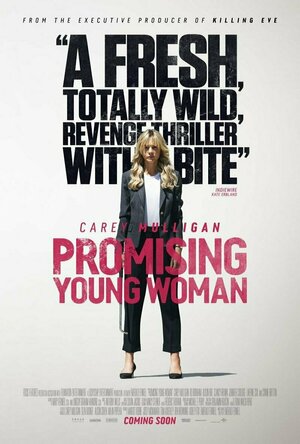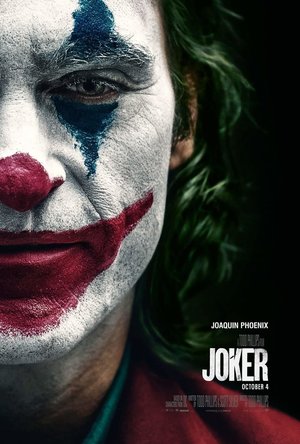Search
Search results
Rachel King (13 KP) rated Chocolat (Chocolat #1) in Books
Feb 11, 2019
I have lost count of the number of times I have watched the movie that is based off of this book, so I figured it was time for me to read the book. Like most movies based on books, the movie is only about half true to the book. In this case though, that did not really bother me.
Joanne Harris has a way of writing that has me savoring every word like one of Vianne Rocher's fine chunks of dark chocolate. What I would have given for a few recipes of the dishes she served in La Celeste Praline, especially the pots of chocolate that were served as frequently as coffee. The descriptions of the various confectioneries and even the non-chocolate dishes were detailed with a light touch, so that I never felt too overwhelmed -- but I still wanted to dive into the pages all the same.
All of the characters, large parts and small, were unique and original, even down to the quirky preferences and hidden burdens. I could easily relate to Armande's attraction to the color red and her unrefined mannerisms, as well as Guillaume's indulgence of his pet dog. So many of the characters could pass for people that I encounter every day -- from Roux's skepticism to Josephine's renewed independence to Caro's need to control. These characters will stay with me for a long time.
Probably the most interesting character, aside from Vianne Rocher, is the town's priest, Pere Reynaud. Like most of the rest of the town, he masks inner demons and makes up for them with his profession of choice. Though those inner torments are slowly revealed through the course of the book, I don't feel that his story was completely resolved, or that he even experienced any true character growth.
Vianne Rocher is certainly the most creative character in the book, both easily likeable and eternally mysterious. Haunted by memories of a nomadic lifestyle with her mother, she intermittently addresses her conflicting desires to both travel and put down roots even as her simple, self-taught cooking and hospitality brings about subtle and lasting change in the village of Lansquenet. A thread of fantasy runs through the plot as Vianne hints at the ability to read people's thoughts, choosing not to influence them, and consults her mother's tarot cards in her darker hours of contemplation. She even adds a touch of magic and mystery to her Chocolaterie to draw the wary villagers into the shop. Oh, what I would give to pay a visit to that amazing place myself.
Joanne Harris has a way of writing that has me savoring every word like one of Vianne Rocher's fine chunks of dark chocolate. What I would have given for a few recipes of the dishes she served in La Celeste Praline, especially the pots of chocolate that were served as frequently as coffee. The descriptions of the various confectioneries and even the non-chocolate dishes were detailed with a light touch, so that I never felt too overwhelmed -- but I still wanted to dive into the pages all the same.
All of the characters, large parts and small, were unique and original, even down to the quirky preferences and hidden burdens. I could easily relate to Armande's attraction to the color red and her unrefined mannerisms, as well as Guillaume's indulgence of his pet dog. So many of the characters could pass for people that I encounter every day -- from Roux's skepticism to Josephine's renewed independence to Caro's need to control. These characters will stay with me for a long time.
Probably the most interesting character, aside from Vianne Rocher, is the town's priest, Pere Reynaud. Like most of the rest of the town, he masks inner demons and makes up for them with his profession of choice. Though those inner torments are slowly revealed through the course of the book, I don't feel that his story was completely resolved, or that he even experienced any true character growth.
Vianne Rocher is certainly the most creative character in the book, both easily likeable and eternally mysterious. Haunted by memories of a nomadic lifestyle with her mother, she intermittently addresses her conflicting desires to both travel and put down roots even as her simple, self-taught cooking and hospitality brings about subtle and lasting change in the village of Lansquenet. A thread of fantasy runs through the plot as Vianne hints at the ability to read people's thoughts, choosing not to influence them, and consults her mother's tarot cards in her darker hours of contemplation. She even adds a touch of magic and mystery to her Chocolaterie to draw the wary villagers into the shop. Oh, what I would give to pay a visit to that amazing place myself.
Yvonne (12 KP) rated A Secret Muse in Books
Jun 9, 2019
Coco Rhodes was happy with her life, an artist and teacher, she enjoyed her freedom. Her brother Chris was a member of a secret society The Allegiance, and whilst her family and friends were members, she wanted nothing to do with them. However, when her life was put in danger, she had no choice but to accept their protection. But could that be enough to save her from Kenan, one of the evilest vampires they have come across
I liked Coco, she was happy to be herself, she was a free spirit, lost in her art and content with her own company. Even though her best friend and her brother were part of The Allegiance, she wanted nothing to do it, which showed how headstrong she was. Even after her accident, she was still stubborn and was literally forced into having additional protection.
I enjoyed how the supernatural overlapped with the real world, regular humans were not aware that supernatural beings lived and worked with them. Only a few people knew about the Allegiance and this kept everyone safe. Due to the society being large, they're quite a few characters in the story, but each one is relevant to the story and when we are introduced to them, parts of their backstory is revealed. As the story continues you soon come to realise how their lives interweave with each other and how they are connected in the future. There are various supernatural beings in this story, witches, vampires, to name but a few. All have an important role in the story.
This story was well researched and as some of the characters are vampires, the story spans over a long time period. Whilst I do not know anything about art, I enjoyed reading about the supernatural involvement used to create some of the most famous paintings. The scenic views of Italy and the places visited were described in fine detail and whether it is the 15th century or the modern day you feel like you are transported there. The pace would quicken with the action, making it more intense. The fight scenes were full on, but the characters would change from fighters to lovers in a few scenes, slowing the pace making it an enjoyable read.
This is a book for adults and whether you are looking for those tall dark and brooding men or just a good fantasy read to start a new series than this is the story for you
I liked Coco, she was happy to be herself, she was a free spirit, lost in her art and content with her own company. Even though her best friend and her brother were part of The Allegiance, she wanted nothing to do it, which showed how headstrong she was. Even after her accident, she was still stubborn and was literally forced into having additional protection.
I enjoyed how the supernatural overlapped with the real world, regular humans were not aware that supernatural beings lived and worked with them. Only a few people knew about the Allegiance and this kept everyone safe. Due to the society being large, they're quite a few characters in the story, but each one is relevant to the story and when we are introduced to them, parts of their backstory is revealed. As the story continues you soon come to realise how their lives interweave with each other and how they are connected in the future. There are various supernatural beings in this story, witches, vampires, to name but a few. All have an important role in the story.
This story was well researched and as some of the characters are vampires, the story spans over a long time period. Whilst I do not know anything about art, I enjoyed reading about the supernatural involvement used to create some of the most famous paintings. The scenic views of Italy and the places visited were described in fine detail and whether it is the 15th century or the modern day you feel like you are transported there. The pace would quicken with the action, making it more intense. The fight scenes were full on, but the characters would change from fighters to lovers in a few scenes, slowing the pace making it an enjoyable read.
This is a book for adults and whether you are looking for those tall dark and brooding men or just a good fantasy read to start a new series than this is the story for you
Kyera (8 KP) rated Clockwork Prince in Books
Jan 31, 2018
The Infernal Devices continues with the second book in the series, Clockwork Prince. The story continues not long after the events of Clockwork Angel and takes place in the now familiar London. In retrospect, I realize that there is not a lot of action in these books. While there are some fantastically written scenes, there are a lot less active, fighting elements than in her other series. For example, you frequently see the characters of the Dark Artifices either training or fighting demons - yet that doesn't happen very often in the Infernal Devices.
As I've re-read this series, I've come to appreciate just how character driven these novels are. While there is action, most of the scenes focus on the characters themselves. You delve deeper into Will's psyche as he continues to push everyone away and wonders if the mask he wears will soon become who he is. You watch as Jem struggles with his illness and how much those around him mean to him. You understand Tessa's struggle to understand who, and what, she is. You feel for Charlotte's struggle for the Institute and the distraction of her husband.
Even though the series is a work of fiction, it just feels real and I believe that that is the mark of a fantastic novel. You connect with the characters and go on this emotional journey with them. As they learn about themselves, grow, change, learn, love and lose - you also feel that you have been affected. Each and every character is further developed in this novel, which I think is the strongest aspect of Clockwork Prince. Tessa, Jem and Will are some of my favourite fictional characters from all of the books that I've read.
I do feel that this book falls prey, to a small degree, to the curse of the second book - which being a bridge between the first and final books in the series can be lacking. Cassandra Clare moved the plot along, allowed us and the characters to discover new information, but overall not a lot happened. I still loved this book, but it was not quite as good as Clockwork Angel and likely won't be anywhere near as good as Clockwork Princess (proclaimed by many to be the best conclusion).
I highly recommend this series to fans of fantasy, who enjoy character driven plots and immerse worlds. Of course, you must read Clockwork Angel first as this is a series and the book would not entirely make sense otherwise.
As I've re-read this series, I've come to appreciate just how character driven these novels are. While there is action, most of the scenes focus on the characters themselves. You delve deeper into Will's psyche as he continues to push everyone away and wonders if the mask he wears will soon become who he is. You watch as Jem struggles with his illness and how much those around him mean to him. You understand Tessa's struggle to understand who, and what, she is. You feel for Charlotte's struggle for the Institute and the distraction of her husband.
Even though the series is a work of fiction, it just feels real and I believe that that is the mark of a fantastic novel. You connect with the characters and go on this emotional journey with them. As they learn about themselves, grow, change, learn, love and lose - you also feel that you have been affected. Each and every character is further developed in this novel, which I think is the strongest aspect of Clockwork Prince. Tessa, Jem and Will are some of my favourite fictional characters from all of the books that I've read.
I do feel that this book falls prey, to a small degree, to the curse of the second book - which being a bridge between the first and final books in the series can be lacking. Cassandra Clare moved the plot along, allowed us and the characters to discover new information, but overall not a lot happened. I still loved this book, but it was not quite as good as Clockwork Angel and likely won't be anywhere near as good as Clockwork Princess (proclaimed by many to be the best conclusion).
I highly recommend this series to fans of fantasy, who enjoy character driven plots and immerse worlds. Of course, you must read Clockwork Angel first as this is a series and the book would not entirely make sense otherwise.
Gareth von Kallenbach (980 KP) rated Futurama: Bender's Game (2008) in Movies
Aug 14, 2019
The third of the straight to DVD Futurama movies, “Futurama: Bender’s Game” has arrived and continues the winning formula of the television series and two previous films.
This time the film starts out as a standard episode rather than continue the events of the past film. In true Futurama style, there are references to past characters and pop culture gags throughout. The early focus of the story is on the Dark Matter fuel shortage that is controlled by the greedy Mom and her corporation. Mom insists that prices are way up so she has to charge more for the precious starship fuel, but avoids any questions related to her record profits related to the ever rising fuel prices.
With the rising fuel costs the Planetary Express Office, is put on a very strict flight schedule that causes havoc amongst the crew. Fry (Billy West), still drifts aimlessly about life, Amy (Lauren Tom) is as shallow as ever and Leela (Katey Sagal), has an ager issue and is outfitted with a shock collar that jolts her whenever she loses her temper.
Bender (John Di Maggio), has a larger issue as he spots some of the staff children and their friends playing Dungeons and Dragons and wants to be a part of the action. It is learned that robots were not built for imagination so when Bender takes up the game and becomes the entity Titanius, he soon has a hard time distinguishing between reality and fantasy. Combine this with Leela’s entry of the Planet Express ship into a Demo Derby and you get a premise ripe with laughter.
The story shifts into high gear when Professor Farnsworth (Billy West), decides to use his anti-backwards crystal to end his old flame Moms hold on the fuel industry. The Crew make a startling discovery as they battle mom, and thanks to the power of the crystal and Bender, find themselves in a strange medieval world where each of them has new identities in this alternate universe.
In a race against time, the Planet Express staff must not only survive the alternate universe, but defeat Mom and her plans for universal domination.
With sharp picture and sound, this is a very enjoyable new adventure for fans.
There are loads of extras which include deleted scenes, commentaries, and a look at the next film “Into The Wild Green Yonder”.
All in all a welcome and satisfying film that should delight fans and help keep us happy until the new film arrives next year.
This time the film starts out as a standard episode rather than continue the events of the past film. In true Futurama style, there are references to past characters and pop culture gags throughout. The early focus of the story is on the Dark Matter fuel shortage that is controlled by the greedy Mom and her corporation. Mom insists that prices are way up so she has to charge more for the precious starship fuel, but avoids any questions related to her record profits related to the ever rising fuel prices.
With the rising fuel costs the Planetary Express Office, is put on a very strict flight schedule that causes havoc amongst the crew. Fry (Billy West), still drifts aimlessly about life, Amy (Lauren Tom) is as shallow as ever and Leela (Katey Sagal), has an ager issue and is outfitted with a shock collar that jolts her whenever she loses her temper.
Bender (John Di Maggio), has a larger issue as he spots some of the staff children and their friends playing Dungeons and Dragons and wants to be a part of the action. It is learned that robots were not built for imagination so when Bender takes up the game and becomes the entity Titanius, he soon has a hard time distinguishing between reality and fantasy. Combine this with Leela’s entry of the Planet Express ship into a Demo Derby and you get a premise ripe with laughter.
The story shifts into high gear when Professor Farnsworth (Billy West), decides to use his anti-backwards crystal to end his old flame Moms hold on the fuel industry. The Crew make a startling discovery as they battle mom, and thanks to the power of the crystal and Bender, find themselves in a strange medieval world where each of them has new identities in this alternate universe.
In a race against time, the Planet Express staff must not only survive the alternate universe, but defeat Mom and her plans for universal domination.
With sharp picture and sound, this is a very enjoyable new adventure for fans.
There are loads of extras which include deleted scenes, commentaries, and a look at the next film “Into The Wild Green Yonder”.
All in all a welcome and satisfying film that should delight fans and help keep us happy until the new film arrives next year.
Whatchareadin (174 KP) rated Lock Every Door in Books
Aug 5, 2019
Jules has just lost her job, her boyfriend and her home all in the same day. She is currently living with her best friend, Chloe. When the opportunity presents itself for her to live in one of the most exclusive apartment buildings in New York City, The Bartholomew, she can't pass up on the chance. Not only does she get to live there, she's getting paid to do so as an apartment sitter. This is an opportunity Jules can not pass up despite the protestations of Chloe, she has to get back on her feet. So she takes the job even though the rules are a little strict. Shortly after moving in, Jules meets another apartment sitter, Ingrid, who is unsure about continuing to live at The Bartholomew. When Jules is ready to ask her about it, Ingrid disappears without a trace. What happened to Ingrid and other apartment sitters that have gone missing? What dark secrets lie within The Bartholomew?
Thank you to NetGalley & Dutton books for the opportunity to read and review this book.
I was so excited to get this book from NetGalley. Last year I read both of Riley Sager's books and I was looking forward to this one. It did not disappoint. I was on the edge of my seat the entire time and I definitely didn't see the ending coming.
If I was a single young woman and was given the opportunity to live in an exclusive apartment and get paid for it, I would jump on that in a heartbeat. I don't think I would care about rules or anything, just tell me where to sign and let me sit back and collect the cash.
Another reason Jules is so quick to accept this opportunity is because her favorite book is set in the building. I think many readers would love to live in the place where their favorite book is set if they don't already. And Jules needs a little fantasy in her life since she has lost both parents and her sister. At first The Bartholomew seems like a dream place to live. With a courteous doorman, friendly neighbors and a doctor as one of the residents, it's idyllic. But when Ingrid goes missing, Jules starts to question everything. The explanation she receives for the sudden departure doesn't sound right and the police aren't willing to help because she doesn't know enough about Ingrid to form a case.
What is she going to do? Will she discover the secrets of the building before it's too late?
Thank you to NetGalley & Dutton books for the opportunity to read and review this book.
I was so excited to get this book from NetGalley. Last year I read both of Riley Sager's books and I was looking forward to this one. It did not disappoint. I was on the edge of my seat the entire time and I definitely didn't see the ending coming.
If I was a single young woman and was given the opportunity to live in an exclusive apartment and get paid for it, I would jump on that in a heartbeat. I don't think I would care about rules or anything, just tell me where to sign and let me sit back and collect the cash.
Another reason Jules is so quick to accept this opportunity is because her favorite book is set in the building. I think many readers would love to live in the place where their favorite book is set if they don't already. And Jules needs a little fantasy in her life since she has lost both parents and her sister. At first The Bartholomew seems like a dream place to live. With a courteous doorman, friendly neighbors and a doctor as one of the residents, it's idyllic. But when Ingrid goes missing, Jules starts to question everything. The explanation she receives for the sudden departure doesn't sound right and the police aren't willing to help because she doesn't know enough about Ingrid to form a case.
What is she going to do? Will she discover the secrets of the building before it's too late?
Ross (3284 KP) rated The Occultist in Books
Feb 12, 2019 (Updated Feb 14, 2019)
Far from original LitRPG but a whole lot of fun
** Thanks to Portal Books and the author for giving me the chance to read this in advance of its release **
The LitRPG genre (the best-known example being Ready Player One) is something of a narrow one. There are only a few levers to pull: the main character's real life scenario, the game mechanics, the main character's chosen "class" in-game and the conflicts therein.
The Occultist looks to mix this up a bit with the main character choosing a less traditional class, of occultist - that is, he learns the ability to summon a variety of demons and spells/abilities to use with them. This would mark The Occultist out from the crowd, if it weren't for Awaken Online already having done almost the exact same. In AO, Jason chooses a dark class and summons zombies, skeletons etc, and a large part of the early stages of this book really bear a very close resemblance to AO. We have the main character's problems at home, leading him to want to escape into the game, and to find a way to make money from his gaming hobby. The chosen in-game path is almost identical. There is an extremely strong, popular player that he wants to compete with.
From early on, I was thinking this book was a rip-off of AO. But the second half of the book is really where the book marks itself apart from AO. Whereas that book's action was focused on large scale strategy in battles, here we are scurrying around in the background picking players off one by one and there are some truly excellent action sequences, where the abilities and spells learned and the demons at Damien's disposal are used to some really creative effects. Damien looks to get some revenge on his nemesis and also to try and "level up" quickly (again, a key component of LitRPG books), and tries to pick off players as they battle other players, or take on perilous dungeons.
A lot of LitRPG books have had a very immersive gaming element, at times it was more like reading a more traditional fantasy book but where the main character was more clear what he was doing and what skills/abilities he was using. Here you are always aware the character is in a game: he "equips" clothes rather than getting dressed, there is no need for eating or sleeping, what can and can't be done, what you get from killing another character etc is so much more in line with games than in other books. This again marked it out from other books, and gave it a very different feel.
Another major selling point of The Occultist is that it doesn't mess around with time dilation (game time running at a much faster rate than real time). I don't see why so many of the other books in this genre feel the need to build this in, as it is then hard to keep it consistent, and doesn't really feel right or necessary at any time.
Also, Damien's real world troubles take more focus than in other books, as he struggles to find somewhere to live and is on the run.
While the book manages to stick to its own rules (what can and can't be done etc), there is one moment where the main character manages to do something he shouldn't be able to do (his spells have a cool down period before they can be used again and at least once this isn't observed), which was slightly frustrating given how hard the author had tried to plan out the action in line with the people involved and their skills and strengths.
My only real gripe with the book is the title of the game/series - Saga Online, which sounds less like an exciting new MMORPG, and more like the web portal for booking a pensioners' cruise!
In summary, not an original idea (but hard to have such a thing in this genre) but a superbly well told, exciting and fun read. I heartily recommend this to anyone who likes fantasy books, games like the Witcher or just anyone looking for some real fun escapism.
The LitRPG genre (the best-known example being Ready Player One) is something of a narrow one. There are only a few levers to pull: the main character's real life scenario, the game mechanics, the main character's chosen "class" in-game and the conflicts therein.
The Occultist looks to mix this up a bit with the main character choosing a less traditional class, of occultist - that is, he learns the ability to summon a variety of demons and spells/abilities to use with them. This would mark The Occultist out from the crowd, if it weren't for Awaken Online already having done almost the exact same. In AO, Jason chooses a dark class and summons zombies, skeletons etc, and a large part of the early stages of this book really bear a very close resemblance to AO. We have the main character's problems at home, leading him to want to escape into the game, and to find a way to make money from his gaming hobby. The chosen in-game path is almost identical. There is an extremely strong, popular player that he wants to compete with.
From early on, I was thinking this book was a rip-off of AO. But the second half of the book is really where the book marks itself apart from AO. Whereas that book's action was focused on large scale strategy in battles, here we are scurrying around in the background picking players off one by one and there are some truly excellent action sequences, where the abilities and spells learned and the demons at Damien's disposal are used to some really creative effects. Damien looks to get some revenge on his nemesis and also to try and "level up" quickly (again, a key component of LitRPG books), and tries to pick off players as they battle other players, or take on perilous dungeons.
A lot of LitRPG books have had a very immersive gaming element, at times it was more like reading a more traditional fantasy book but where the main character was more clear what he was doing and what skills/abilities he was using. Here you are always aware the character is in a game: he "equips" clothes rather than getting dressed, there is no need for eating or sleeping, what can and can't be done, what you get from killing another character etc is so much more in line with games than in other books. This again marked it out from other books, and gave it a very different feel.
Another major selling point of The Occultist is that it doesn't mess around with time dilation (game time running at a much faster rate than real time). I don't see why so many of the other books in this genre feel the need to build this in, as it is then hard to keep it consistent, and doesn't really feel right or necessary at any time.
Also, Damien's real world troubles take more focus than in other books, as he struggles to find somewhere to live and is on the run.
While the book manages to stick to its own rules (what can and can't be done etc), there is one moment where the main character manages to do something he shouldn't be able to do (his spells have a cool down period before they can be used again and at least once this isn't observed), which was slightly frustrating given how hard the author had tried to plan out the action in line with the people involved and their skills and strengths.
My only real gripe with the book is the title of the game/series - Saga Online, which sounds less like an exciting new MMORPG, and more like the web portal for booking a pensioners' cruise!
In summary, not an original idea (but hard to have such a thing in this genre) but a superbly well told, exciting and fun read. I heartily recommend this to anyone who likes fantasy books, games like the Witcher or just anyone looking for some real fun escapism.
**✿❀ Maki ❀✿** (7 KP) rated The Warrior Heir (The Heir Chronicles, #1) in Books
May 3, 2018
[a:Cinda Williams Chima|125308|Cinda Williams Chima|https://d.gr-assets.com/authors/1291420167p2/125308.jpg] was my biggest takeaway from [b:The Way of the Wizard|8121665|The Way of the Wizard|John Joseph Adams|https://d.gr-assets.com/books/1297656860s/8121665.jpg|12917149]. I absolutely adored the short story of how Linda and Hastings met, and knew that I had to read the actual series.
You can definitely tell that this was written a few years before the short story in The Way of the Wizard. The writing isn't quite on the same level - all of the key elements are still there, but in a rawer form.
That's not a bad thing. I'm not insulting the quality of the writing, at all. It was still a very enjoyable story, and the writing and the editing were solid. And I'm happy to watch the progression of the narrative, as it gets stronger over time.
...but. If I had read The Warrior Heir before I read "The Trader and the Slave", I probably would have enjoyed this book more than I did. Part of me kept waiting for the dark, grittiness that the short story had, and it never really showed up.
Were parts of The Warrior Heir heavy? Sure. There's a lot of double-crossing, morality, and self-sacrifice in there. But it wasn't quite the same.
Sorry for that slight detour there. I felt that, before I started talking about the book itself, I should explain the factors that went towards my final rating.
Because, in general, I loved this book. It was a lot of fun to read. I loved the "world" and the magic system, I loved the history and explanations of why magic works, and where it came from. The dedication to the magic system was very nice, and much appreciated in such an action-based fantasy book.
The main characters all managed to keep me interested in what was going on (even though there wasn't nearly enough Linda and Hastings in there for me), and the antagonists walked a delicate balance of being evil, and just doing what they thought would be best for themselves, or for those around them. Even some of the protagonists walked that line, which was <i>really</i> nice to see.
Morality - it's pretty important to the story.
There weren't really any surprises in the plot department. It was incredibly easy to guess the various "twists" the book had to offer. <spoiler>Especially anything having to do with Ellen.</spoiler> But personally, I was too distracted by the world-building to overly care about how predictable things were.
Because in Maki-land, well-established magic system > plot.
You can definitely tell that this was written a few years before the short story in The Way of the Wizard. The writing isn't quite on the same level - all of the key elements are still there, but in a rawer form.
That's not a bad thing. I'm not insulting the quality of the writing, at all. It was still a very enjoyable story, and the writing and the editing were solid. And I'm happy to watch the progression of the narrative, as it gets stronger over time.
...but. If I had read The Warrior Heir before I read "The Trader and the Slave", I probably would have enjoyed this book more than I did. Part of me kept waiting for the dark, grittiness that the short story had, and it never really showed up.
Were parts of The Warrior Heir heavy? Sure. There's a lot of double-crossing, morality, and self-sacrifice in there. But it wasn't quite the same.
Sorry for that slight detour there. I felt that, before I started talking about the book itself, I should explain the factors that went towards my final rating.
Because, in general, I loved this book. It was a lot of fun to read. I loved the "world" and the magic system, I loved the history and explanations of why magic works, and where it came from. The dedication to the magic system was very nice, and much appreciated in such an action-based fantasy book.
The main characters all managed to keep me interested in what was going on (even though there wasn't nearly enough Linda and Hastings in there for me), and the antagonists walked a delicate balance of being evil, and just doing what they thought would be best for themselves, or for those around them. Even some of the protagonists walked that line, which was <i>really</i> nice to see.
Morality - it's pretty important to the story.
There weren't really any surprises in the plot department. It was incredibly easy to guess the various "twists" the book had to offer. <spoiler>Especially anything having to do with Ellen.</spoiler> But personally, I was too distracted by the world-building to overly care about how predictable things were.
Because in Maki-land, well-established magic system > plot.
Ross (3284 KP) rated House of Sacrifice in Books
Aug 14, 2019
Style over substance in a long grind of a conclusion
* I received an advance copy of this book from the publishers and NetGalley in exchange for an honest review *
Anna Smith Spark broke onto the scene with The Court of Broken Knives (which always annoyed me because the place in the book is named the Court of the Broken Knife), a truly dark and gritty fantasy tale mixing magic, ambition, political intrigue and good old fashion hacking limbs off with blunted swords. Her narrative tone made her debut stand out, being much more lyrical and poetic than the rest of the genre. While this took time to get used to, it added to the immersion of the story and made the reader feel like they were experiencing the conflict themselves. The lyrical prose added to the underlying story. This continued into the second book, where Marith's journey to taking over/destroying the world continued, as did the turmoil in the heart of the empire.
Here, however, the story seems to have been put on the back-burner in favour of more literary prose. A whole lot of not a lot happens. While a large chunk of this is in favour of some character development, it is laboured and a real slog. I hated the first quarter of the book, and while I could see that what little was happening would be important in telling Marith's story, it really did take forever and was so utterly rammed home that I found it frustrating. So much so that I had to put the book aside so that my mood didn't ruin my family holiday.
The book serves as something of a conclusion to the trilogy with a lot of wrongs righted and paths ended. However, so much of it is simply gratuitous war for the sake of war (which I get as part of Marith's character but I grasped that after the first couple of unnecessary towns were razed).
However, with less of import happening, the reader starts to focus on the world-building, and I certainly started to realise how little of the "magic" in the world was explained or even described. So many instances of "shadowbeasts" just appearing and I cannot remember them being introduced in any detail at all. I really couldn't remember what was so special about Marith after all.
And the ending was so much of a damp squib I just had to laugh. After everything Marith had been through, for that to be the ending was ludicrous. While I appreciated the circularity of it, I didn't like it.
A disappointing case of style over substance in this dragged out ending to a series that could easily have squeezed into two book.
Anna Smith Spark broke onto the scene with The Court of Broken Knives (which always annoyed me because the place in the book is named the Court of the Broken Knife), a truly dark and gritty fantasy tale mixing magic, ambition, political intrigue and good old fashion hacking limbs off with blunted swords. Her narrative tone made her debut stand out, being much more lyrical and poetic than the rest of the genre. While this took time to get used to, it added to the immersion of the story and made the reader feel like they were experiencing the conflict themselves. The lyrical prose added to the underlying story. This continued into the second book, where Marith's journey to taking over/destroying the world continued, as did the turmoil in the heart of the empire.
Here, however, the story seems to have been put on the back-burner in favour of more literary prose. A whole lot of not a lot happens. While a large chunk of this is in favour of some character development, it is laboured and a real slog. I hated the first quarter of the book, and while I could see that what little was happening would be important in telling Marith's story, it really did take forever and was so utterly rammed home that I found it frustrating. So much so that I had to put the book aside so that my mood didn't ruin my family holiday.
The book serves as something of a conclusion to the trilogy with a lot of wrongs righted and paths ended. However, so much of it is simply gratuitous war for the sake of war (which I get as part of Marith's character but I grasped that after the first couple of unnecessary towns were razed).
However, with less of import happening, the reader starts to focus on the world-building, and I certainly started to realise how little of the "magic" in the world was explained or even described. So many instances of "shadowbeasts" just appearing and I cannot remember them being introduced in any detail at all. I really couldn't remember what was so special about Marith after all.
And the ending was so much of a damp squib I just had to laugh. After everything Marith had been through, for that to be the ending was ludicrous. While I appreciated the circularity of it, I didn't like it.
A disappointing case of style over substance in this dragged out ending to a series that could easily have squeezed into two book.
BankofMarquis (1832 KP) rated Promising Young Woman (2020) in Movies
Apr 10, 2021
Powerful
Emerald Fennell’s feature length motion picture Directing debut, PROMISING YOUNG WOMAN, is a difficult film to categorize. Is it a Dark Comedy? A RomCom? A family drama? A portrait of a character’s descent? A hard critique of sexism and sexual predators? A revenge fantasy?
The answer is - it is ALL of these and thanks to a wonderful script (by Fennell), strong Direction (again, by Ferrell) and a terrific, Oscar-worthy performance in the lead role (by Carey Mulligan) it is a very effective, very powerful film.
PROMISING YOUNG WOMAN tells the tale of Cassandra who we are introduced to at a bar, obviously drunk, getting picked up (and taken advantage of) by a “nice guy” at the bar. Once back at his place, it is clear that she is NOT drunk and she confronts the “nice guy”.
To say anything else would spoil this wonderful film.
At the center of this film is Carey Mulligan (deservedly) Oscar nominated turn as Cassandra. This is a tortured soul who is looking for some sort of catharsis from a previous trauma and seeks various ways to achieve this. You see an intelligence and sadness in Cassandra at every turn and Mulligan’s performance seemed rooted in reality and was, ultimately, an effective, chillingly and (yes) sad character brought to life. It is the type of performance that I will be rooting for in the Oscar race, it’s that good.
Most of the other characters in this film fleet in and out of Cassandra’s life but all are strong performances, seemingly willing to bring their “A” game to match Mulligan’s performance and the strong script. Kudos to Jennifer Coolidge, Alison Brie, Laverne Cox, Bo Burnham, Christopher Mintz-Plasse (yes, a McLovin’ sighting!), Alfred Molina, Moly Shannon, Connie Britton and, especially, the great Clancy Brown. They all enhanced the film with their performances, working off of Mulligan effectively.
But, credit to all of this must go to Writer/Director Emerald Fennell (probably best known for playing Camilla Parker Bowles in THE CROWN) who's script is smart and thought-provoking and who’s Direction is crisp and sure. She clearly had a certain type of film in her head - the type of film that does not easily lend itself to definition/classification and packs a powerful punch at it’s conclusion. Without spoiling anything, she “ups her game” at the end of this film and I sat in thoughtful silence as the end credits ran.
Fennell is up for the Oscar for both Best Director and Best Original Screenplay and I, for one, would vote for her Screenplay hands-down.
An intriguing film that is sticking with me a few days later…always a mark of quality.
Letter Grade: A
9 Stars (out of 10) and you can take that to the Bank(ofMarquis)
The answer is - it is ALL of these and thanks to a wonderful script (by Fennell), strong Direction (again, by Ferrell) and a terrific, Oscar-worthy performance in the lead role (by Carey Mulligan) it is a very effective, very powerful film.
PROMISING YOUNG WOMAN tells the tale of Cassandra who we are introduced to at a bar, obviously drunk, getting picked up (and taken advantage of) by a “nice guy” at the bar. Once back at his place, it is clear that she is NOT drunk and she confronts the “nice guy”.
To say anything else would spoil this wonderful film.
At the center of this film is Carey Mulligan (deservedly) Oscar nominated turn as Cassandra. This is a tortured soul who is looking for some sort of catharsis from a previous trauma and seeks various ways to achieve this. You see an intelligence and sadness in Cassandra at every turn and Mulligan’s performance seemed rooted in reality and was, ultimately, an effective, chillingly and (yes) sad character brought to life. It is the type of performance that I will be rooting for in the Oscar race, it’s that good.
Most of the other characters in this film fleet in and out of Cassandra’s life but all are strong performances, seemingly willing to bring their “A” game to match Mulligan’s performance and the strong script. Kudos to Jennifer Coolidge, Alison Brie, Laverne Cox, Bo Burnham, Christopher Mintz-Plasse (yes, a McLovin’ sighting!), Alfred Molina, Moly Shannon, Connie Britton and, especially, the great Clancy Brown. They all enhanced the film with their performances, working off of Mulligan effectively.
But, credit to all of this must go to Writer/Director Emerald Fennell (probably best known for playing Camilla Parker Bowles in THE CROWN) who's script is smart and thought-provoking and who’s Direction is crisp and sure. She clearly had a certain type of film in her head - the type of film that does not easily lend itself to definition/classification and packs a powerful punch at it’s conclusion. Without spoiling anything, she “ups her game” at the end of this film and I sat in thoughtful silence as the end credits ran.
Fennell is up for the Oscar for both Best Director and Best Original Screenplay and I, for one, would vote for her Screenplay hands-down.
An intriguing film that is sticking with me a few days later…always a mark of quality.
Letter Grade: A
9 Stars (out of 10) and you can take that to the Bank(ofMarquis)
Lee (2222 KP) rated Joker (2019) in Movies
Oct 6, 2019 (Updated Oct 6, 2019)
Arthur Fleck (Joaquin Phoenix) is a down on his luck loner, currently taking seven different kinds of medication and living with his frail old mother (Frances Conroe). Arthur fantasises about living a ‘normal’ life, with hopes of becoming a stand up comedian and dating his next door neighbour, and the lines between reality and fantasy begin to become just as blurred for us during the movie as they do within Arthur’s mind.
We’re in Gotham City during the early eighties. A garbage strike means that the city is currently suffering from a build up of garbage on the streets and the subsequent arrival of ‘super rats’. The rich are getting richer, the poor and the underprivileged even more so. And, at the forefront of all the wealth and power in the city is Thomas Wayne, who is currently looking to run for mayor. There is growing divide and unrest throughout Gotham, all of which serves to add fuel to the increasingly unstable mind of Arthur Fleck.
We’ve had our fair share of Joker portrayals over the decades, the most memorable of which being in 2008, and Heath Ledger’s brilliant take on the character in The Dark Knight. But Joaquin Phoenix brings a side to the Joker we’ve not experienced before - all skin and bone, abused, downtrodden, ridiculed and with a neurological condition that sees him suddenly laughing maniacally and uncontrollably, even during times of stress or sadness. Throughout the movie, we learn that Arthur also had a pretty unpleasant childhood and, for a while, you really can sympathise with him and the suffering he experiences. “I just don’t want to feel so bad any more” he says at one point.
Joker features no CGI, no costumed antics (other than the clowned kind), or any of the traditional comic book movie themes that we’re now so used to seeing. Instead, Joker treats us to something of a slow-burn character study, one mans slow descent into madness, and the birth of one of the most iconic villains of all time. Joaquin Phoenix is incredible in the role, supported by an outstanding cast, including Robert De Niro as a late night talk show host idolised by Arthur and Zazie Beets as the neighbour Arthur becomes obsessed with.
Joker isn’t exactly enjoyable in the traditional sense, uncomfortable at times and a brutally honest depiction of extreme mental health issues. But it’s beautifully shot, subtly weaving itself into the familiar DC universe while remaining unique and original. I was gripped from start to finish and I just hope that the upcoming Robert Pattison incarnation of The Batman fits into the universe and style that has been introduced here within Joker.
We’re in Gotham City during the early eighties. A garbage strike means that the city is currently suffering from a build up of garbage on the streets and the subsequent arrival of ‘super rats’. The rich are getting richer, the poor and the underprivileged even more so. And, at the forefront of all the wealth and power in the city is Thomas Wayne, who is currently looking to run for mayor. There is growing divide and unrest throughout Gotham, all of which serves to add fuel to the increasingly unstable mind of Arthur Fleck.
We’ve had our fair share of Joker portrayals over the decades, the most memorable of which being in 2008, and Heath Ledger’s brilliant take on the character in The Dark Knight. But Joaquin Phoenix brings a side to the Joker we’ve not experienced before - all skin and bone, abused, downtrodden, ridiculed and with a neurological condition that sees him suddenly laughing maniacally and uncontrollably, even during times of stress or sadness. Throughout the movie, we learn that Arthur also had a pretty unpleasant childhood and, for a while, you really can sympathise with him and the suffering he experiences. “I just don’t want to feel so bad any more” he says at one point.
Joker features no CGI, no costumed antics (other than the clowned kind), or any of the traditional comic book movie themes that we’re now so used to seeing. Instead, Joker treats us to something of a slow-burn character study, one mans slow descent into madness, and the birth of one of the most iconic villains of all time. Joaquin Phoenix is incredible in the role, supported by an outstanding cast, including Robert De Niro as a late night talk show host idolised by Arthur and Zazie Beets as the neighbour Arthur becomes obsessed with.
Joker isn’t exactly enjoyable in the traditional sense, uncomfortable at times and a brutally honest depiction of extreme mental health issues. But it’s beautifully shot, subtly weaving itself into the familiar DC universe while remaining unique and original. I was gripped from start to finish and I just hope that the upcoming Robert Pattison incarnation of The Batman fits into the universe and style that has been introduced here within Joker.
